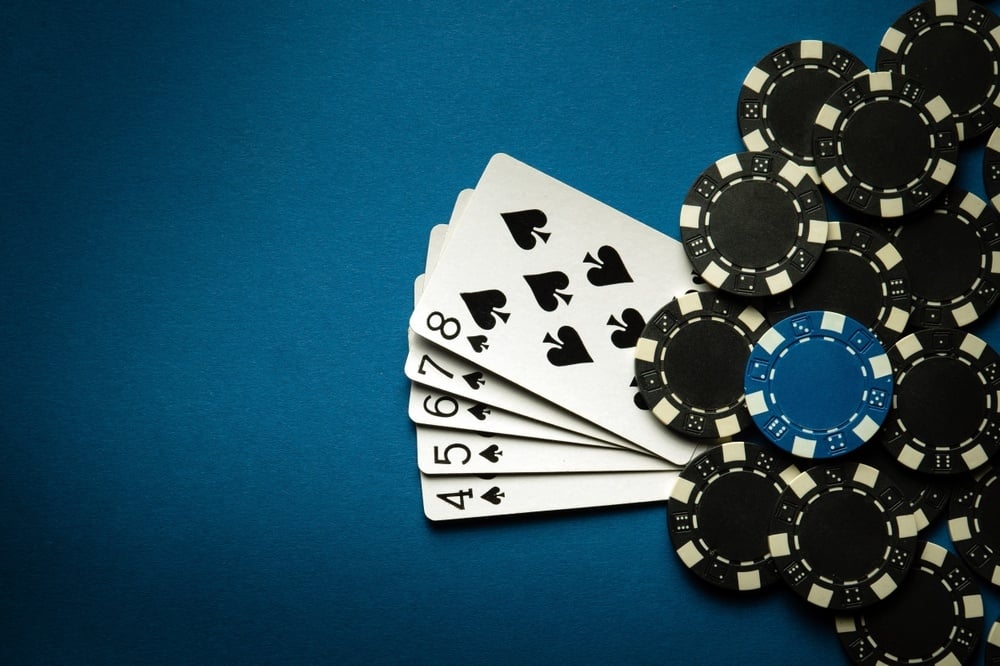Transforming from Poker Enthusiast to Serious Competitor: The Intermediate Player’s Guide

If you’ve dabbled in poker and feel eager to break through to a higher standard, you’re in excellent company. Many committed players experience periods of frustration as their results flatline, with skill progression seeming elusive. However, by taking targeted action and fostering the right mindset, you can break past limits and step up as a competitive force at the tables.
Identifying Your Motivation: A Player’s Journey
Consider the example of Sarah, who began playing online poker for fun with friends. As she became intrigued by the game’s complexities, she took the leap into local tournaments. The mix of ups and downs sparked a determination in her to go beyond casual play and become a consistent winner.
By identifying her motivation—to genuinely master her craft—Sarah took control of her development. She became more intentional, choosing tournaments that matched her aspirations and dedicating regular time to both study and mental training. While setbacks occurred, her sense of purpose kept her on track.
Your own transformation can follow a similar path: clarify your goals, be purposeful in your approach, and invest consistent effort into self-improvement. This article explores how to candidly assess your abilities, structure your growth, build resilience, and ultimately develop the mindset of a true competitor.

Assessing Your Poker Progress: Establishing Your Baseline
Before charting a course for improvement, it’s crucial to evaluate your current standing objectively. Many intermediate players plateau because they misjudge either their strengths or weaknesses. Honest self-review is the first step to focused advancement.
Start by scrutinizing these three essential dimensions:
- Strategic Understanding: Are your preflop decisions grounded in strong fundamentals? Do you consistently consider your position, hand equity, and stack sizes? How well do you maneuver post-flop scenarios? Gaps here are worth identifying for targeted study.
- Mental Fortitude: How well do you recover from bad beats or unlucky streaks? Can you sustain focus during long sessions? Do emotional swings impact your decision-making? Mental game lapses can be as costly as technical ones.
- Time Management and Study Habits: How do you allocate time between playing and studying? Do you follow a structured curriculum, or is your learning sporadic? Do you review your hand histories to identify leaks? A balanced approach is crucial for real growth.
Intermediate players often fall into one of two traps: playing endlessly without reflection, or endlessly consuming content without applying it. Seek harmony between study and play to unlock new levels of performance.

Building a Structured Pathway for Skill Development
Once you’ve mapped out your strengths and weaknesses, it’s time to turn this self-assessment into a plan for real improvement. What separates casual hobbyists from dedicated competitors is a methodical approach to growth—treating your progression like an ongoing project.
- Prioritize One Area at a Time: Instead of overwhelming yourself by multitasking, choose a specific aspect—such as preflop strategy or hand reading—to focus on for one or two weeks. Deep-dive into books, videos, or hand charts to cement this foundation.
- Balance Learning and Practice: Alternate study sessions with hands-on play. For instance, spend a couple of hours reviewing hands or watching strategic tutorials and then put these lessons into practice at the tables. This cycle ensures concepts translate into performance.
- Track Progress Methodically: Keep a poker journal with notes on studied concepts, memorable hands, and lessons learned. If you play online, consider using software such as PokerTracker or Hold’em Manager to analyze stats and spot trends.
- Adopt Process-Driven Goals: Shift your primary ambitions from financial targets to process-oriented milestones, such as reviewing a set number of hands weekly or mastering preflop charts for every seat. This keeps motivation steady, even during unlucky streaks.
- Hold Yourself Accountable: Share your improvement plan with a study partner, group, or coach. Regular check-ins and honest feedback can help maintain momentum and provide valuable outside perspective.
With a systematic, focused approach, small steps become meaningful progress, paving the way for consistent, long-term gains.

Emotional Management: Thriving Amid Variance
Poker’s inherent unpredictability can test even the most seasoned individuals. Handling emotional swings and downswings is a defining trait of successful competitors, especially as stakes rise and swings become more pronounced.
Mark, for instance, faced rough patches after confidently moving up in stakes. A chain of tough beats undermined his confidence, leading to poor decisions and mounting losses. It was only when he focused on managing his emotions—recognizing physical signs of stress and using techniques like controlled breathing—that he regained composure and improved his performance.
Effective mental strategies include:
- Practicing breathing techniques—such as inhaling for six seconds, holding for two, and exhaling for seven—to center yourself amid stress.
- Reframing adversity: View losing hands and bad beats as inevitable, focusing instead on the quality of your decisions, not individual outcomes.
Cultivating the Mindset of a True Competitor
To progress beyond recreational play requires an attitude shift. Where hobbyists agonize over outcomes, strong competitors analyze hands objectively, focusing on learning and making optimal choices with the information at hand.
- Set Process Goals: Base your satisfaction on discipline and growth—such as hours spent studying or number of reviewed hands—instead of winnings over a short time.
- Embrace Discomfort: Advancing often means facing concepts or opponents that challenge you. Seek tougher games and study your weak spots, treating mistakes as stepping stones.
- View Mistakes as Learning Opportunities: After each session, review missteps. Ask yourself what you could do differently, and plan how to adapt next time.
- Strengthen Confidence Through Preparation: Visualizing successful plays, methodically practicing, and tracking your growth over time will boost your confidence and resilience at the table.
With the right mindset, you’ll find yourself less attached to the outcome of every session, more focused on actionable improvement, and better equipped to handle inevitable setbacks.

The Power of Feedback and Mentorship in Poker
No poker player thrives in true isolation. While much of the grind is solitary, collaborating with others—through peer review or mentorship—can accelerate your development and help you uncover blind spots you might miss alone.
- Leverage Peer Feedback: Connect with study partners or join a review group to discuss hand histories. A different viewpoint can reveal patterns or leaks you haven’t spotted.
- Analyze Data with Software: Online tools like PokerTracker or Hold’em Manager allow you to review your play objectively. Discussing this data with others often unlocks valuable insights.
Finding and Benefiting from a Mentor
A knowledgeable mentor—whether a professional coach or an experienced player—can transform your development curve, providing guidance, accountability, and personalized advice tailored to your goals.
- Seek Relevant Experience: Look for someone with a proven background at the games or stakes you hope to master.
- Assess Compatibility: Choose a mentor whose teaching style matches your learning preferences and whose feedback is actionable.
- Explore Online Options: Numerous training programs, group coaching sessions, and one-on-one coaches are available to help refine both your technical and mental games.
Surround yourself with ambitious, supportive players who share your drive. By building this support network and seeking knowledgeable feedback, you fast-track your growth and sustain momentum, especially through the inevitable plateaus and setbacks.

Your Blueprint for Advancing in Poker
Becoming a true competitor in poker requires much more than clocking hours at the table. It’s a journey of self-discovery, intentional practice, and developing mental toughness. Challenges will arise—variance, technical leaks, motivation dips—but with a structured process and the right attitude, each can serve as a catalyst for growth.
- Reflect on your underlying motivation and clarify your goals.
- Assess your strengths and weaknesses honestly.
- Construct a focused and adaptable improvement plan.
- Prioritize emotional control and resilience.
- Foster a process-oriented, growth-driven mindset.
- Engage mentors and peers for feedback and support.
Progress is not about instant perfection, but about continuous, purposeful effort. Even modest, consistent changes will yield significant improvement over time. Begin today: set one meaningful goal, work towards it diligently, and watch as your game—and your results—transform.








